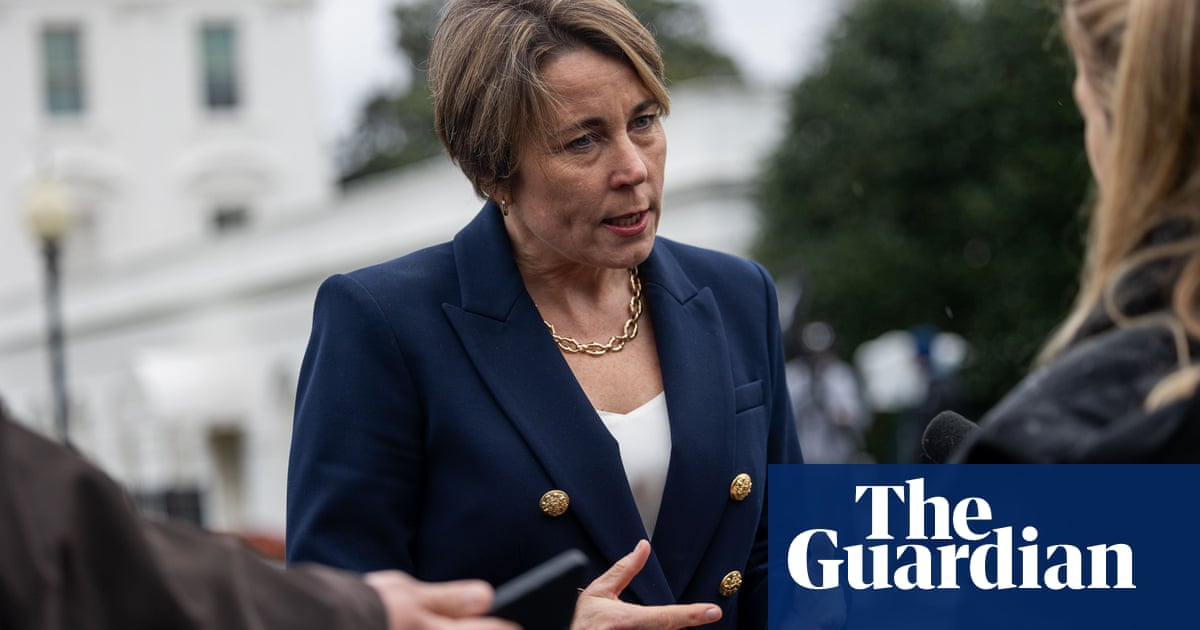Massachusetts governor calls Trump’s attacks on Harvard ‘bad for science’
TruthLens AI Analysis
The article highlights the ongoing conflict between Massachusetts Governor Maura Healey and former President Donald Trump regarding the impact of Trump's actions on Harvard University and the broader academic community. Healey articulates concerns about the negative consequences of Trump's decisions, particularly the financial cuts and potential loss of talent in the scientific sector.
Implications of Trump's Actions
Healey suggests that Trump's funding cuts to Harvard and other institutions are not merely political maneuvers but have significant real-world implications. She emphasizes that these cuts lead to layoffs of scientists and medical professionals, affecting patient care and research in critical areas such as cancer treatment. This framing positions Trump’s actions as harmful to public health and scientific advancement.
Perception Management
The article aims to shape the public's perception of Trump's governance as detrimental to American innovation and competitiveness. By linking Trump's policies to a decline in scientific research and healthcare quality, the narrative seeks to rally support against his administration's approach to higher education and funding for research institutions.
Potential Concealment of Broader Issues
While focusing on the immediate impacts of Trump's actions, the article may divert attention from other pressing issues within Massachusetts or the broader national context. The emphasis on Harvard and prestigious institutions might obscure systemic challenges in education and healthcare that are independent of federal funding.
Manipulative Elements
The article employs emotional language and appeals to national pride, framing the loss of researchers to other countries as a direct consequence of Trump's policies. This strategy may be seen as manipulative, as it seeks to evoke a sense of urgency and concern among readers about the future of American science and health care.
Truthfulness of the Claims
The claims made in the article, particularly regarding funding cuts and their impacts, appear to be based on factual events. However, the interpretation of these events may be colored by political bias, as Healey is a Democratic governor criticizing a Republican former president.
Narrative Context
Comparatively, this article aligns with a broader narrative in the media that often critiques Trump's policies. It reflects a common theme where the actions of the former president are portrayed as harmful, particularly in the context of education and science.
Community Reception
The article is likely to resonate more with communities that prioritize education, science, and public health, particularly among Democrats and those advocating for increased funding for research and healthcare.
Economic and Political Impact
Should the narrative gain traction, it could influence voter sentiment leading into future elections, particularly in Massachusetts and similar regions. The potential for funding cuts to impact public health could amplify calls for change in leadership, affecting political dynamics as well as economic policies.
Stock Market Considerations
In the context of financial markets, this situation may impact shares of companies linked to healthcare and research, particularly those reliant on academic partnerships for innovation. Investors may react to perceptions of instability in academic funding, which could affect biotech and pharmaceutical stocks.
Broader Geopolitical Context
While the article does not directly address global power dynamics, the implication that American researchers might seek opportunities abroad touches on concerns about retaining talent in a competitive international landscape. This situation could have long-term implications for America's position in global science and technology.
AI Involvement in Article Composition
There is no explicit indication that AI was used in the article’s writing. However, if AI were involved, it might have influenced the structure or tone of the piece to emphasize certain narratives over others. Such manipulation could serve to heighten emotional responses or streamline the presentation of facts.
Overall, the article presents itself as a commentary on the implications of policy decisions affecting higher education and public health, aiming to mobilize public sentiment against perceived governmental overreach and its consequences on American competitiveness.
